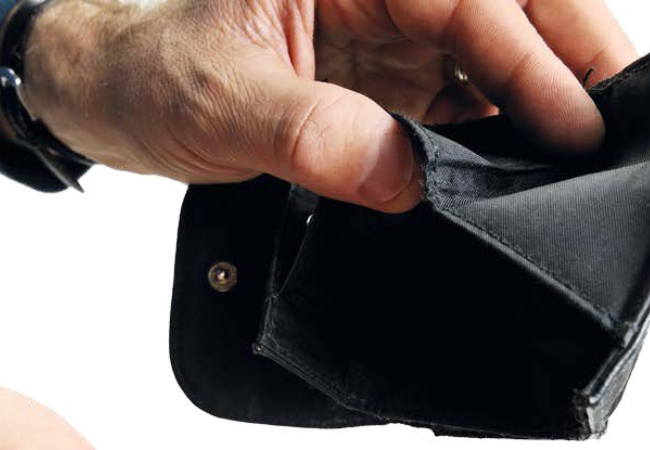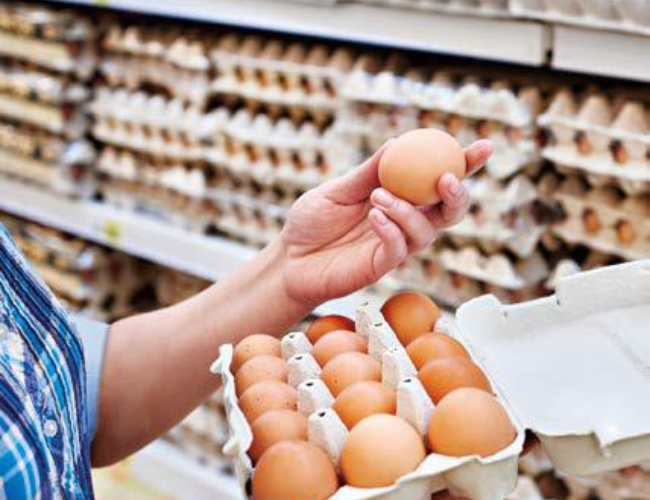
No bonus, no spare cash in your wallet and barely a budget to speak of – that seems to be the norm for so many people.
We can barely afford a basket of groceries these days, much less a trolley full of goods! But South Africans are known for their practical attitudes and have come up with solutions to cope in lean times. Although we know the basics – don’t shop when you’re hungry, leave the kids at home, stick to the list – there are many more things you can do to trim expenses. Here’s a round-up of 20 savvy ways to reduce pain at the till.
1 Check the water content
Pay for food, not water, says Ann Goslin, executive officer of the South African National Consumer Union (Sancu). Some frozen chicken pieces are injected with brine, which increases their weight by up to 43 percent. The percentage of brine in the chicken must be stated on the pack.
Fresh (raw) chicken might cost 50 percent more than frozen chicken per kilogram but it provides the same cooked quantity as frozen chicken does – and it tastes better, Goslin says. A similar trend is evident with mince and sausages. Be wary of specials and check the small print on labels, where the water content should be indicated.
2 Shop online
You often find exclusive deals and special offers if you shop online. Because you don’t have to travel, online shopping saves you time and money and you’re also more likely to stick to your list because there are no treats to tempt you in the aisles or at the till points.
3 Shop at cash-and-carry stores
If you have a big family and are willing to buy in bulk you can save a lot by shopping at stores such as Makro. They buy products in bulk and can therefore sell at discount prices. If you don’t want a lot of a particular product or if buying in bulk stretches your budget too far, team up with relatives or friends so you can still make use of these deals.
4 Check the unit price
Some products are offered in a variety of package sizes, Goslin says. Hard cheese is often cut into blocks of 900 g or 800 g and at a glance they look the same as a 1 kg pack. Cottage cheese comes in 175 g, 200 g, 225 g and 250 g containers, all looking much the same. Check the weight and make sure you’re not paying more for less. Always work out the price per kilogram or gram. Some stores work this out for you and indicate it on a label on the shelf, she says.
5 Buy whole, not portions
Buy a whole chicken instead of portions – this usually works out less per kilogram, and leftover bones can be used to make soup or stock.
6 Plan your meals to use up ingredients you’ve bought
When drawing up your meal plans, make dishes using the same ingredient if there’s plenty of it. So if you’re not using all the corn you bought for Monday’s meat-free corn fritters, make chicken and corn soup on Tuesday and a corn salsa to go with your fried chicken on Wednesday.
7 Pack it yourself
It’s more affordable to select your own fruit and vegetables and buy by the kilogram than to opt for ready-packed. It also often works out less expensive to have ham, for example, sliced at the deli than to buy it ready-sliced and prepacked, says Anton Viljoen of DCM Group, a company supporting consumers.
8 If it costs less, buy prepacked
Sometimes you have to buy more of an item because you know you’ll end up cutting away heaps of leaves and peels to be left with only a handful of usable produce. A ready-to-use pack might work out cheaper.
9 Visit your local market
Fresh produce markets have fewer overheads and goods are more competitively priced. You’ll be buying in season and supporting local farmers. You also don’t pay for packaging and transporting the goods.
10 Pay less for these
It’s okay to buy the least expensive flour, sugar, oats, rice and salt – after all, can you really tell the difference between the most expensive and the best-priced goods? The same goes for toilet paper, kitchen towels and serviettes.
11 But pay more for . . .
Tomatoes that last for two weeks instead of going bad within three days. Some items, such as clothing, also tend to be of a better quality if they’re more expensive. This applies particularly to dresses, shirts, trousers and suits you wear often.
12 Oddly shaped fruit tastes as good
Sometimes fruit is downgraded and costs less because of something as inconsequential as its shape. Does it really matter if an apple or pear is slightly misshapen or if one banana in a bunch is smaller than the rest?
13 Don’t throw out simply because of sell-by dates
We’ve become so used to throwing away things as they reach their sell-by date. But sometimes items last much longer than indicated – smell and taste to check if products are still okay instead of just throwing them away.
14 Use cheaper cuts
Yes, meat is expensive, but you can use more affordable cuts. These work particularly well in stews and casseroles, says Ray-Anne Cahill, who shares tips on how to live thriftily on frugality- for-today.com. Because stews are cooked for a longer time, tougher meat cuts become tender. Use lamb neck, beef brisket, ox cheeks and stewing beef in stews and baked dishes.
15 Avoid snack packs
Items sold in smaller boxes or strings of packets often work out more expensive than the product in big boxes or packets. It may seem like a small saving but on a tight budget every little bit counts.
16 Eggs by the dozen
Packs of assorted-size eggs are often better priced. For dishes such as scrambled eggs, the weight and size of the eggs don’t matter that much.
17 Beware of ‘buy one, get one free’
Or it may be “buy one, get the second at half price” or “buy three, pay for two”. Sometimes this sort of offer isn’t worth it, Viljoen says. It may seem like a good deal but don’t be seduced into buying more than you need or can use.
18 Have a shopping-free day once a week
This is a good rule for those who buy bread and milk at the local garage shop every day – and often end up leaving with a few more items every time. Buy two loaves of bread and extra milk so you don’t have to stop at the shop on your shopping-free day.
19 Use a calculator
Seeing that total creep up is a good way to ensure you stick to your shopping list and resist impulse buys. It’s even more effective to take only the budgeted amount of cash with you rather than your debit card – that way you can’t spend more than you planned.
20 Beware the special offer
Yes, it might be marked down from its original price – but is it less expensive than a rival brand? Always check that goods on offer are really a worthwhile deal.




 Publications
Publications
 Partners
Partners





















